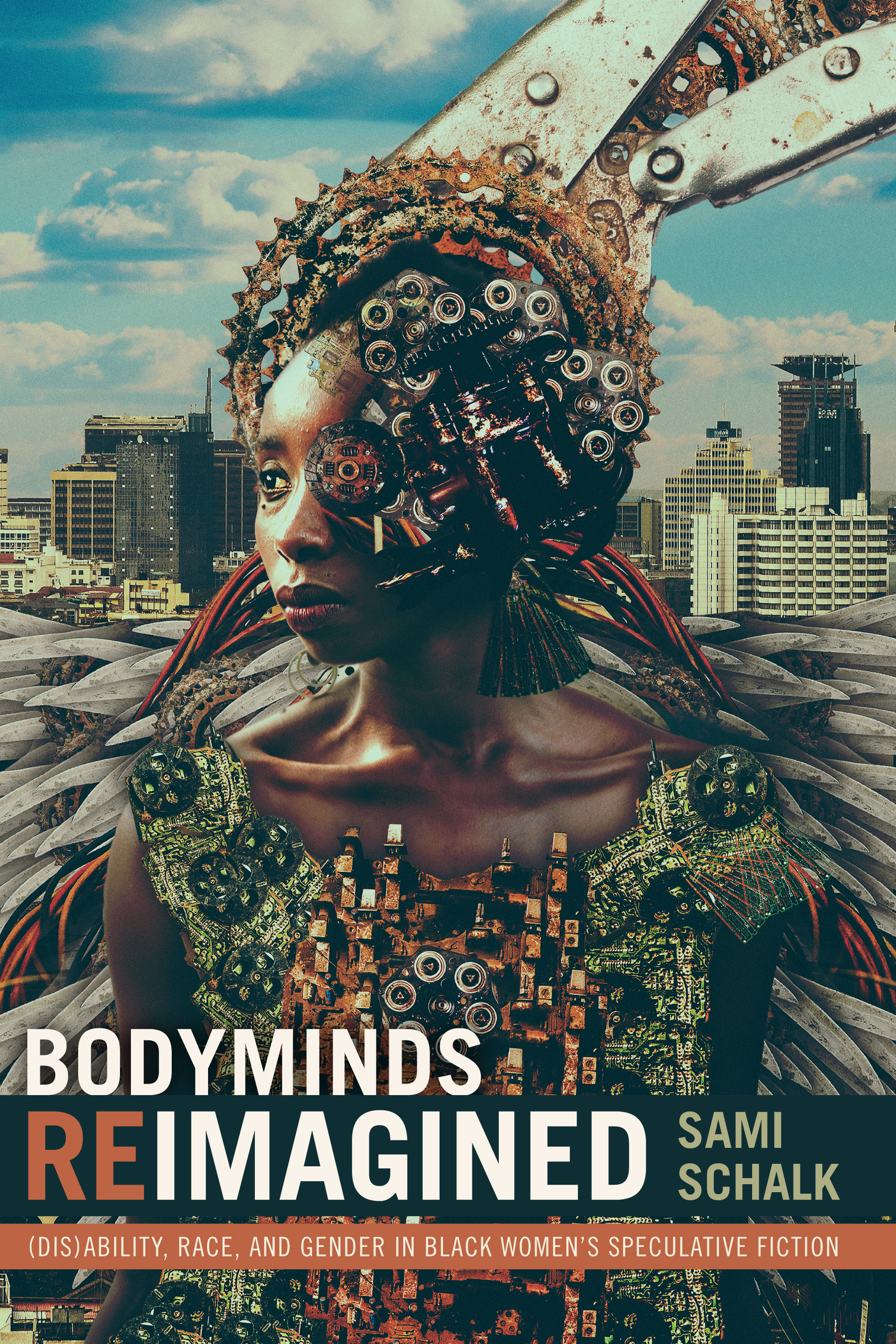Bodyminds Reimagined: A New Book on Disability, Race, and Gender
This post is part of our blog series that announces the publication of selected new books in African American History and African Diaspora Studies. Bodyminds Reimagined: (Dis)ability, Race, and Gender in Black Women’s Speculative Fiction was recently published by Duke University Press.
***
Sami Schalk is an Assistant Professor of Gender & Women’s Studies at University of Wisconsin-Madison. Her research focuses on race, disability, and gender in contemporary American literature and culture, particularly African American literature and women writers. Schalk’s first book, Bodyminds Reimagined: (Dis)ability, Race & Gender in Black Women’s Speculative Fiction (Duke University Press, 2018), explores how Black women writers of speculative fiction reimagine the limits and possibilities of bodyminds thereby changing the way we read and interpret categories of (dis)ability, race, and gender. Her next research project explores disability politics in post-Civil Rights Black art and activism. Follow her on Twitter @drsamischalk.
In Bodyminds Reimagined Sami Schalk traces how Black women’s speculative fiction complicates the understanding of bodyminds—the intertwinement of the mental and the physical—in the context of race, gender, and (dis)ability. Bridging Black feminist theory with disability studies, Schalk demonstrates that this genre’s political potential lies in the authors’ creation of bodyminds that transcend reality’s limitations. She reads (dis)ability in neo-slave narratives by Octavia Butler (Kindred) and Phyllis Alesia Perry (Stigmata) not only as representing the literal injuries suffered under slavery, but also as a metaphor for the legacy of racial violence.
The fantasy worlds in works by N. K. Jemisin, Shawntelle Madison, and Nalo Hopkinson—where werewolves have obsessive-compulsive-disorder and blind demons can see magic—destabilize social categories and definitions of the human, calling into question the very nature of identity. In these texts, as well as in Butler’s Parable series, able-mindedness and able-bodiedness are socially constructed and upheld through racial and gendered norms. Outlining (dis)ability’s centrality to speculative fiction, Schalk shows how these works open new social possibilities while changing conceptualizations of identity and oppression through nonrealist contexts.
“In this smart and necessary book, Sami Schalk persuasively argues that Black women’s speculative fiction offers a rich archive of alternate framings of (dis)ability, race, sexuality, and gender that move us closer toward justice. Bodyminds Reimagined reveals how nonrealist representations can defamiliarize categories assumed to be self-evident, opening up new ways of thinking about methodology, trauma, metaphor, and politics. Schalk’s work pushes all of us in feminist studies, Black studies, and disability studies to reimagine how we understand minds and bodies moving though the world.” — Alison Kafer, author of Feminist, Queer, Crip
Keisha N. Blain: Please share with us the creation story of your book—those experiences, those factors, those revelations that caused you to research this specific area and produce this unique book.
Sami Schalk: I first became interested in disability studies when, as a nineteen-year-old newly out queer Black woman I took an elective course called “Women & Disability.” In that class, I was first exposed to my own privilege as a non-disabled person despite my multiple other marginalized identities. I realized if I wanted to push others to educate themselves and be allies to my communities that I needed to learn more about disability and ableism. The more I learned the more I realized that ableism is intimately intertwined with and to other forms of oppression, yet disability identity and analysis was often missing in the Black feminist theory I was reading. When I began my doctoral program, therefore, I was invested in bringing together Black feminist theory and disability studies, particularly at the site of literature because I am a big believer in the power and potential of texts.
As I discuss in the introduction to my book, I did not initially plan to focus my research on speculative fiction. Instead, I planned a single dissertation chapter on Octavia E. Butler’s work and the rest of the project would focus on other genres like slave and neo-slave narratives, memoir, historical fiction, etc. A mentor encouraged me to narrow the project so I wouldn’t be in graduate school forever and suggested that I focus on speculative fiction since, at the time, there was almost no work in disability focused on this genre. I was initially unsure that there would be enough for an entire dissertation, but thanks to fan websites and forums which pointed me to popular genre texts typically ignored by literary scholars, I found there was so much with which to work. The books I read convinced me of the incredible strength of speculative fiction for reimagining the limits and possibilities of bodyminds in ways that lay bare the socially constructed and contextual nature of the categories of (dis)ability, race, and gender. I was a late-in-life fan of speculative fiction and I am hopeful that my work brings new fans and scholars to the genre while simultaneously introducing concepts in Black feminism and disability studies to existing speculative fiction fans and scholars.
Copyright © AAIHS. May not be reprinted without permission.

